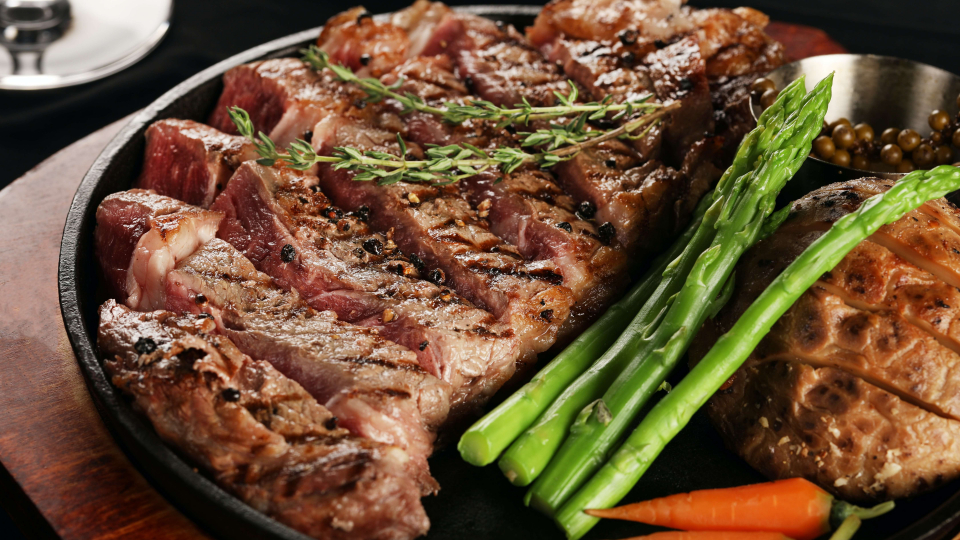One of the hardest things about adjusting to life with dentures is adjusting your diet. Many foods are simply impractical to eat when using dentures for a variety of reasons:
- They’re too tough for the dentures to bite through.
- Hard foods can make dentures fall or slip out.
- They’ll get stuck in the space between the denture and gum, becoming an ideal breeding ground for potentially harmful bacteria.
- Sores make it impossible to bite down without excruciating pain.
To ensure the effectiveness of the dentures, and the health and your mouth, we’ve compiled a simple guide to foods you can’t eat with dentures — and foods you can.
Foods to Avoid for Denture Wearers
We’ll make a distinction between foods you should avoid outright, and foods you should eat much more sparingly.
Hard foods
Hard, crunchy foods are best avoided as much as possible when you have dentures. The primary concern is the uneven pressure placed on the jaw and denture. This can damage and or dislodge the denture, requiring a repair or replacement and damaging the soft tissue of the mouth.
Hard foods include things like
- Nuts
- Raw carrots
- Popcorn
- Crunchy apples
- Corn on the cob
The latter two might not be seen as traditionally “hard” foods, but they require a good deal of force to bite into, and this is where the problem lies.
Tough Meats
Tough meat needs to be tenderized quite substantially before you can swallow and digest it properly. This involves a lot of chewing, and a lot of pressure. The stress load on the denture and gum can result in sores developing on the gum, leading to infections and abscesses.
Tough meats to avoid include:
- Pork chops
- Ribs
- Steak
- Chicken
High-quality meat cooked medium rare can be soft enough to not need too much chewing, but treat it as a special occasion.
Foods with small, hard-to-control pieces
If you’re not sure what to think when we say hard-to-control pieces, think popcorn. No matter how well you chew or how thoroughly you think you’ve got every piece, there will inevitably be some bit of husk stuck between teeth by the end.
These foods aren’t ideal even without dentures, as the small pieces easily lodge in the teeth and feed bacteria. With dentures, however, it’s even more important to avoid them for the health of your mouth.
Examples include:
- Buns with sesame seeds
- Shelled nuts
- Seeds in general
Food to eat in moderation
Sticky foods should be kept to a minimum when wearing dentures. They won’t necessarily damage the denture, but they are likely to make them slip out of place.
Slipping dentures can be quite embarrassing and humiliating to some denture wearers. Even if taken in good humor, slipping and adjusting the dentures can cause irritation of the gum and soft tissues of the mouth.
Things to eat in moderation include
- Peanut butter
- Gummy candies
- Soft caramel
Foods You Can Eat With Dentures
So, we’ve seen all of the things you can’t eat — what can you eat with dentures?
Ground and slow-cooked meats are great animal protein options for denture wearers. Ground beef is already tenderized and barely needs to be chewed, so there’s not much strain on the denture or gums. Slow-cooked meat that has been allowed to cook for many hours is soft and tender, and can even be eaten in stews or soups without chewing.
Be careful, however, as both ground meat and slow-cooked meat can have small, hard to control pieces that can get stuck around dentures. Clean thoroughly.
Non-nut spreads such as hummus or cream cheese are perfect for denture wearers. Hummus can come with a variety of flavors, making it an ideal replacement for the sweet and salty flavor combination found in peanut butter.
Ripe fruit that is soft and easy to bite and chew are fine for denture wearers. Some fruits such as citrus fruits have strands that can get stuck; be cautious. If you want to play it safe, blend fruits into a smoothie for a delicious, hassle-free experience.
Cooked vegetables are often softer than their raw state. Steamed or boiled vegetables are soft and easy to chew with dentures. Steamed carrot, for example, is much more preferable than raw carrots for those with dentures. Stir-fried vegetables are supposed to maintain their crispness, so be wary of them.
Get More Support with Implant-Supported Dentures
Implant-supported dentures are an exciting development in denture technology from the past few decades.
Rather than supporting the denture with the gum and soft palate of the mouth, these dentures are affixed to as few as four dental implants per jaw. The implants provide a level of support and stability to the denture that’s simply not possible with traditional denture technology.
Patients with implant-supported dentures are able to eat more of their favorite foods. As the implants can’t slip around, sticky foods are less of a concern. Tough and hard foods should still be kept to a minimum, but aren’t as worrisome as with traditional dentures. Patients get more confidence to eat meat, fruits, vegetables — even popcorn.
Article originally published at yournewteethnow.com.

